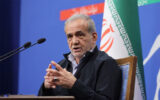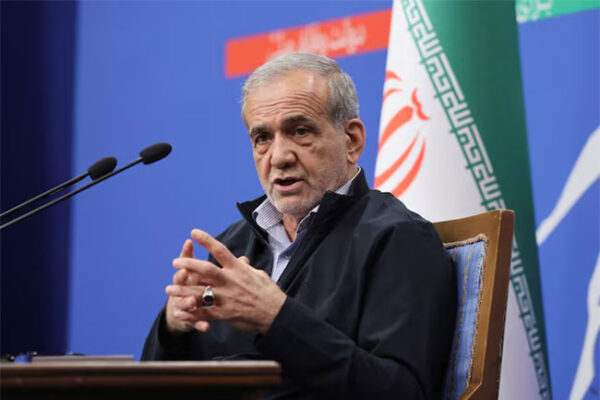By dpa correspondents
Berlin (dpa) – Chancellor Angela Merkel said that judging from the experience of other European countries there was no alternative to the “tough” coronavirus law that went into effect across Germany on Saturday.
The law known as the “emergency brake” imposes uniform coronavirus restrictions, such as a night-time curfew, on areas where infections are rapidly spreading.
It kicks in when the infection rate in a given district, as measured by the number of cases during the past week per 100,000 people, reaches more than 100 for three consecutive days.
Wide swathes of Germany exceed the limit, from rural communities to big cities like Berlin, Cologne, Frankfurt and Munich.
“No country that has managed to break the third wave of the pandemic and then relax has done so without tough measures such as night-time social restrictions,” Merkel said in her weekly video message.
That is why Germany “cannot avoid the measures,” she said.
The law, approved this week by parliament, is hotly debated as it lets the federal government supersede state-level decisions, a key change to the relationship between the federal and state governments.
Merkel argued that Germany had to end its patchwork response to the pandemic, and said the move was especially needed now as the country tries to tame a third wave.
The measures include closures of cultural spaces, a slight tightening of contact restrictions, and a 10 pm to 5 am curfew, the most controversial element.
Schools must also switch to distance learning if the incidence rate exceeds 165, new hygiene rules apply to non-essential businesses, and restaurants are closed apart from take-away offerings.
The Virchowbund, a professional association of practising physicians in Germany, sees the new regulations as a cause for optimism.
“I see a chance that the third wave is about to be broken,” chairman Dirk Heinrich told the Neue Osnabruecker Zeitung.
He said the accelerating vaccination effort and previous lockdown measures have already begun to stabilize the numbers, and the “emergency brake” will accelerate the trend.
Merkel described Germany’s vaccination drive as “picking up speed.”
So far, around 7 per cent of people in Germany have been fully vaccinated. The percentage of people who received the first dose of a vaccine stood at 22 per cent as of Saturday, according to the Robert Koch Institute of disease control.














